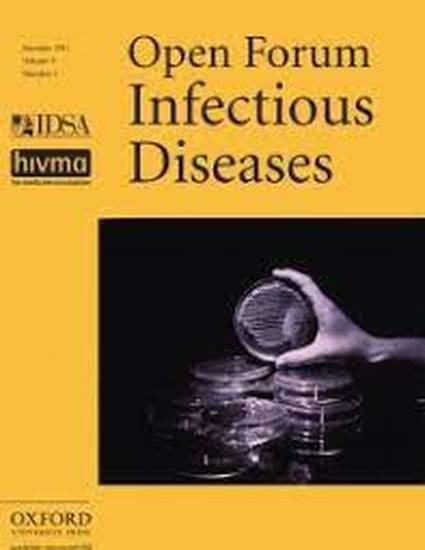
Article
853. Epidemiology of Groups A, C, and G β-Hemolytic Streptococcal Pharyngitis
Open Forum Infectious Diseases
(2019)
Abstract
Treatment of Group A Streptococcus (GAS) pharyngitis is imperative to mitigate sequelae such as rheumatic heart disease. The need for treatment of Group C Streptococcus (GCS) and Group G Streptococcus (GGS) pharyngitis is unclear, as rheumatogenic sequelae have not been well documented. Our institution switched from culture to molecular confirmation testing for a negative rapid streptococcal antigen detection test. Cultures reported GAS whereas molecular testing reported GAS GCS, and GGS. We performed a retrospective chart review to examine the epidemiological differences of GAS, GCS, and GGS pharyngitis. Methods. Records were obtained of pharyngeal samples from patients sent for testing at Beaumont Health Laboratory. In all, 92,369 records were analyzed. There were 47,106 records of cultures from May 2012 through December 2014 and 45,263 records of molecular testing from May 2015 to December 2017. Samples positive for either GCS or GGS were reported as positive for Group CG Streptococcus (GCGS). Epidemiological factors were evaluated. If available, electronic records from GCGS positive samples were evaluated for clinical features, antibiotics used, and sequelae or complications reported. Results. Molecular testing showed GAS positivity of 9.3% (n = 4,189) and GCGS positivity of 1.5% (n = 687). GCGS pharyngitis was more likely during the summer months and in young adults 13 years and older than children under 13 years. GAS pharyngitis was more likely during spring months and in children aged 4–9 years. Mean age of GCGS pharyngitis was 13 vs. 8.6 years for GAS pharyngitis. Similar results were obtained for GAS between culture and molecular testing records. Amoxicillin was most often prescribed for treatment of GCGS. There were few instances of severe GCGS exudative or recurrent pharyngitis that required hospitalization or tonsillectomy. There were no cases of rheumatic fever or rheumatic heart disease associated with GCGS. Conclusion. This is the largest study based on our literature review to evaluate the epidemiology of GAS, GCS, and GGS pharyngitis in children and adults. We found a seasonal and age difference between GAS and GCGS. Complications were rare, and no rheumatogenic sequelae were noted from GCGS infections.
Disciplines
Publication Date
October 23, 2019
DOI
10.1093/ofid/ofz359.038
Citation Information
Lim JRM, Boyanton BL, George J, Sims M. 853. Epidemiology of Groups A, C, and G β-Hemolytic Streptococcal Pharyngitis. Open Forum Infect Dis. 2019 Oct 23;6(Suppl 2):S18–9. doi: 10.1093/ofid/ofz359.038. PMCID: PMC6809185.
